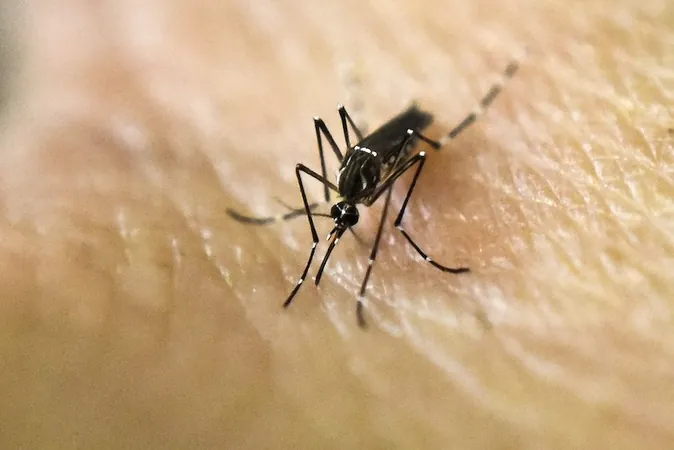
Tragic First Case of West Nile Virus Death in Idaho This Year
2025-08-15
Author: Yan
Idaho Reports First West Nile Virus Fatality
In a heartbreaking development, Idaho health officials have confirmed the state's first death linked to the West Nile virus this year. The victim, a resident of Twin Falls County aged over 65, succumbed to the illness caused by this mosquito-borne virus.
Rising Concerns Over Mosquito Activity
This year, mosquito samples indicating West Nile virus activity have been identified in seven counties across southern Idaho, as well as in neighboring Malheur County, Oregon. Notably, not all counties routinely monitor and test mosquito populations.
Health Experts Urge Caution
Dr. Kathy Turner, Deputy State Epidemiologist, emphasized the urgency of protecting oneself against mosquito bites. "This tragic incident serves as a crucial reminder for everyone to take necessary precautions against mosquito exposure. It's vital to wear long sleeves and pants and utilize insect repellent whenever outdoors," she stated.
Understanding West Nile Virus Symptoms
Many individuals infected with the West Nile virus may not show symptoms at all. However, roughly one in five affected persons experience moderate symptoms, including fever, headaches, body aches, joint pain, and other discomforts. For about one in 150 individuals, the virus can lead to severe complications affecting the brain and spinal cord, resulting in hospitalization and even death for about 10% of these severe cases.
Who's Most at Risk?
Older adults and those with underlying health conditions face a higher risk of severe illness from West Nile virus. Recovery from such severe cases can extend over weeks or even months, with some enduring lasting effects.
Protect Yourself This Summer!
To ward off West Nile virus, it's crucial to minimize mosquito exposure, especially during peak activity times at dusk and dawn. Here are essential protection tips:
1. Dress smart by wearing loose-fitting, long-sleeved shirts and pants outdoors.
2. Utilize EPA-registered insect repellents on exposed skin, carefully following product labels, especially for children's use.
3. Explore suitable repellents with the EPA’s search tool or the CDC’s Insect Repellent Chatbot.
4. Opt for clothing treated with permethrin for extra protection.
5. Use mosquito netting for strollers and baby carriers.
6. Secure your home by mending or replacing damaged screens.
7. Eliminate standing water on your property, checking containers and outdoor items that collect water.
8. Regularly refresh water in bird baths, decorative ponds, and animal water tanks to deter mosquito breeding.




 Brasil (PT)
Brasil (PT)
 Canada (EN)
Canada (EN)
 Chile (ES)
Chile (ES)
 Česko (CS)
Česko (CS)
 대한민국 (KO)
대한민국 (KO)
 España (ES)
España (ES)
 France (FR)
France (FR)
 Hong Kong (EN)
Hong Kong (EN)
 Italia (IT)
Italia (IT)
 日本 (JA)
日本 (JA)
 Magyarország (HU)
Magyarország (HU)
 Norge (NO)
Norge (NO)
 Polska (PL)
Polska (PL)
 Schweiz (DE)
Schweiz (DE)
 Singapore (EN)
Singapore (EN)
 Sverige (SV)
Sverige (SV)
 Suomi (FI)
Suomi (FI)
 Türkiye (TR)
Türkiye (TR)
 الإمارات العربية المتحدة (AR)
الإمارات العربية المتحدة (AR)